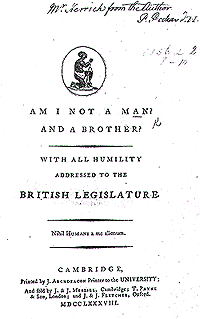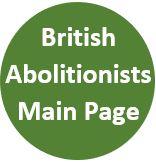>Peter Peckard: biography and further reading (original) (raw)
Peter Peckard (c.1718-1797)

Biography
Little is known about Peter Peckard's early life. He was born in Welbourn, Lincolnshire around the year 1718. He studied at Corpus Christi College, Oxford, between 1734 and 1738 and became a fellow in 1744. He appears to have served as an army chaplain before settling in Cambridgeshire. In 1760, he asked for a dispensation from the church to allow him to hold the two livings of Fletton and Yaxley simultaneously. This pluralism was almost disallowed because of Peckard's alleged doctrinal heterodoxy, but at the last minute he modified his views and was permitted to derive benefits from both parishes. This was to become Peckard's hallmark: although he later vacated Yaxley, he had amassed a considerable portfolio of ecclesiastical preferments by the time of his death, including his position as Dean of Peterborough.
In 1781, he was appointed to the mastership of Magdalene College, Cambridge. Three years later, he became the vice-chancellor. While at Cambridge, Peckard, always a man of liberal views, developed an interest in - and an opposition to - the slave trade, an opposition prompted in the first instance by the horrific Zong incident. This event, which took place in 1781, demonstrated the barbarity of the slave trade when a captain threw 133 slaves overboard in order that, by their death, he could reclaim their value in insurance. From this point onwards, Peckard frequently preached sermons against the trade, several of which were published as tracts and pamphlets. However, perhaps his most substantial contribution to the abolition campaign was indirect. On his appointment as vice-chancellor, he set the essay question "is it lawful to make slaves of others against their will?" (Anne Liceat Invitos in Servitutem Dare?) This question was successfully answered by the student Thomas Clarkson, who was to go on to be one of the most celebrated of the abolitionists. Having been one of the earliest people to oppose the slave trade, Peckard continued to preach and publish against it, his last pamphlet on the subject being published in 1795. Peckard died two years later, on 8 December 1797, and is buried at Peterborough.
© Brycchan Carey 2002
Bibliography
Selected Works
- Am I Not a Man? and a Brother? With all humility addressed to the British legislature (Cambridge: J. Archdeacon, 1788)
- Juctice and Mercy recommended, particularly with reference to the Slave Trade. A Sermon preached before the University of Cambridge (Cambridge: J. Archdeacon, 1788)
- National Crimes the Cause of National Punishments. A discourse deliver'd in the cathedral church of Peterborough, on the fast-day, Feb: 25th, 1795. By the Dean of Peterborough (Peterborough: Jacob, 1795)
Selected Works in Facsimile
- Kitson, Peter, et al, eds, Slavery, Abolition and Emancipation: Writings in the British Romantic Period (London: Pickering and Chatto, 1999), 8 vols.



